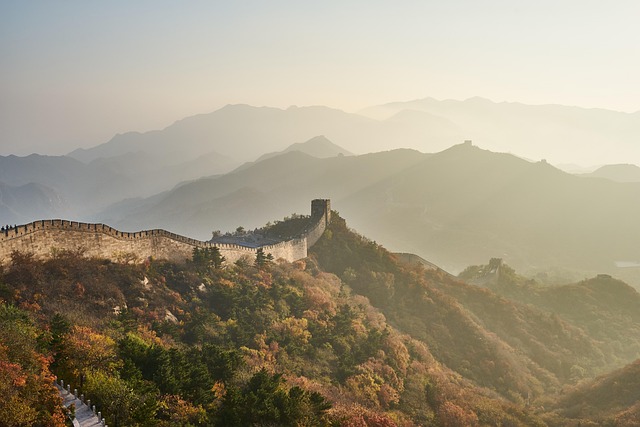
China's Billionaire Count Plunges: Economic Woes and Shifting Wealth Landscape
Listen up, folks! We're talking about a dramatic shift in the world of wealth, specifically in China. You know, the land of booming economies and skyrocketing fortunes. Well, things have taken a turn, and the number of billionaires in China has taken a nosedive. This isn't just a small dip either, we're talking about a sharp decline of over a third since the peak in 2021.
Now, let's bring in the experts. The Hurun Report, a renowned authority on wealth rankings, has shed light on this startling trend. They say China's economy and stock markets have had a rough ride, and this has impacted the wealth of its elite. The number of individuals on the Hurun China Rich List has shrunk for a third year in a row, down by 12% to just under 1100 individuals. That's a significant drop from the high point of 2021, when a whopping 1465 individuals crossed the CNY 5 billion mark.
The Shifting Wealth Landscape
This decline in billionaire numbers is a clear indication of a changing economic landscape. The sectors that have historically fuelled wealth creation, such as real estate, are facing challenges. In their place, new sectors are emerging, driven by innovation and technological advancements. The report highlights the rise of tech, new energy, consumer electronics, e-commerce, consumer products, and healthcare as new drivers of wealth.
The Rise of AI
And guess what? Artificial intelligence, the buzzword of the decade, is playing a major role in this shift. The Hurun report reveals that over half of the new money being generated is coming from AI-related businesses. This signifies a significant paradigm shift in how wealth is being created. It's a clear signal that the future belongs to those who embrace technology and innovation.
A Tale of Two Cities
Now, while some sectors are thriving, others are struggling. The report highlights the concentration of wealth in the hands of a select few. The growth in wealth of the top 10 billionaires accounts for a staggering 60% of the total wealth growth. This means that the gap between the rich and the rest is widening. There are 13 names on the list boasting personal wealth of over $100 billion, a testament to the growing inequality.
A New Era
Despite the decline in the number of billionaires and the concentration of wealth, China's economy remains a force to be reckoned with. The country's resilience and adaptability are remarkable. While the past few years have been challenging, the future holds new opportunities. The rise of AI and other emerging technologies promises a new era of wealth creation and economic growth.
The Changing Face of Wealth
The Hurun report paints a fascinating picture of the shifting landscape of wealth in China. It shows us how traditional sectors are giving way to new, tech-driven industries. It also highlights the growing concentration of wealth and the widening gap between the rich and the rest.
"The Hurun China Rich List has shrunk for an unprecedented third year running, as China’s economy and stock markets had a difficult year." - Rupert Hoogewerf, Hurun Report Chairman and Chief Researcher
China Billionaire Trends - Year-on-Year
Let's delve into some specifics. Here's a table summarizing the changes in the number of billionaires in China over the last few years, according to the Hurun Report:
Year | Number of Billionaires | Change from Previous Year |
2021 | 1,465 | - |
2022 | 1,100 | -25% |
2023 | 1,094 | -12% |
The table paints a clear picture of the declining trend. The year 2021 saw a peak in billionaire numbers, but since then, the number has been consistently decreasing.
The Top 10
Here's a glimpse into the top 10 billionaires in China, as per the 2024 Hurun Report:
Rank | Name | Net Worth (USD Billion) | Industry |
1 | Zhang Yiming | 49.3 | Technology (ByteDance) |
2 | Zhong Shanshan | 48.0 | Beverages (Nongfu Spring) |
3 | Ma Huateng | 45.8 | Technology (Tencent) |
4 | Colin Huang | 42.0 | E-commerce (Pinduoduo) |
5 | Wang Wei | 40.1 | Logistics (SF Express) |
6 | Jack Ma | 38.8 | Technology (Alibaba) |
7 | He Xiangjian | 36.8 | Consumer Electronics (Midea) |
8 | Li Ka-shing | 35.4 | Real Estate and Infrastructure |
9 | Wang Chuanfu | 34.1 | Electric Vehicles (BYD) |
10 | Liu Yonghao | 33.0 | Agriculture (New Hope Group) |
The Churn in the Rich List
The report also highlighted the dynamism of China's billionaire list. There's a constant churn, with new names emerging and others fading away. The report states that half of the entrepreneurs on this year's list were not present just five years ago, and a staggering 8 out of 10 were not there 10 years ago. This shows the rapid pace of change in China's economic landscape.
Key Takeaways
So, what are the key takeaways from the Hurun Report? China's billionaire count is declining due to economic challenges and a shift in wealth creation. Sectors like real estate are facing headwinds, while tech, new energy, and AI-related businesses are on the rise. The concentration of wealth is also increasing, with the top 10 billionaires accounting for a significant chunk of the total wealth growth. Despite these challenges, China's economic dynamism and adaptability remain strong. The future promises new opportunities driven by technological advancements and innovation.
Stay tuned for more insights into the evolving world of wealth in China!
Space for advertisement
BUSINESS
Oct 30, 2024
China's Billionaire Count Plunges: Economic Woes and Shifting Wealth Landscape
China's billionaire count has plunged, falling by over a third since 2021, as economic woes impact wealth creation.

